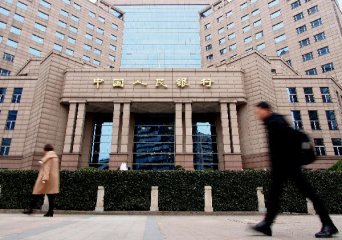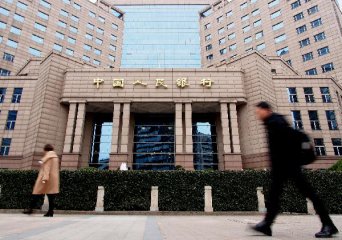
China’s bond market is hosting a battle of wills between the country’s leadership and lower-ranking officials and corporate bosses.
They are fighting over perpetual bonds, debtlike securities that lack a maturity date and technically never need to be repaid. Issuance has surged since the start of 2018, partly because state-backed companies see them as a way to hit Beijing-mandated debt-reduction targets without going through a painful restructuring or diluting government control.
The central government, concerned that issuers are adding to their long-term financial risk and deferring more substantive efforts to hit those targets, recently tightened the rules, making it harder to count perpetuals as equity rather than debt for accounting purposes.
The securities were first permitted in China in 2013. Some 1.8 trillion yuan ($268 billion) of perpetuals are now outstanding—95% issued by state-backed businesses, from energy giants to “local government financing vehicles,” which build and run infrastructure projects. Among the many issuers: China Datang Corp., a power generator, and ZTE Corp. , a maker of telecommunications equipment.
Issuance by nonfinancial companies surged 51% last year to a record 580.4 billion yuan—according to calculations by The Wall Street Journal, using data from Wind—and has risen further this year, albeit at a slower pace. Banks have also begun issuing these instruments to shore up capital ratios.
The securities have a long history: Yale University holds one sold by a Dutch water board in 1648, for example, while Britain issued some to refinance its loans from World War I. Today they typically rank below senior debt in the queue for repayment, and their interest payments can sometimes be stopped or postponed—meaning they can be viewed like shares for accounting purposes, or by credit-rating firms.
.
In recent years, banks in Europe and Asia have sold “contingent convertibles,” or CoCos, which convert from perpetuals into common stock if the bank’s capital ratio falls too low. Some European utilities and industrial companies have also sold perpetuals.
In all cases, issuers have to walk a fine line—making the bonds look sufficiently like debt to prospective bond buyers and sufficiently like shares to credit-rating firms and accountants.
Barring exceptional circumstances, bondholders mostly expect to receive regular coupon payments and to have the bonds bought back after a few years. This expectation can be reinforced by features like a step-up in interest rates after a first “call” date.
However, investors can find themselves wrong-footed, as they were this year when Spain’s Santander failed to redeem a CoCo as expected.
Beijing has given state enterprises until the end of 2020 to cut their debt-to-asset ratios by 2 percentage points from the 2017 level. The latest official data show the overall ratio at 64.4% in February, down from 65.7% at the end of 2017.
But analysts at Rhodium Group and elsewhere reckon much of the progress is thanks to sleight-of-hand with perpetuals. For example, China National Chemical Corp.’s ratio is 17 percentage points lower than it would be if its perpetuals were treated on the books as regular bonds, S&P Global Ratings estimates.
S&P analyst Cindy Huang said state enterprises and local government financing vehicles could “find perpetual bond issuance the quickest and easiest solution” for deleveraging.
Since perpetuals typically pay higher returns than standard bonds to compensate holders for the extra risk, state enterprises are effectively paying more to borrow, worsening their financial malaise. Yuan perpetuals typically carry coupons of 4% to 7%, nearly a full percentage point above those of comparable regular senior bonds, Ms. Huang said.
You can’t change the governance of a [state-owned enterprise] by issuing a perpetual bond.
—Alicia Garcia Herrero, economist at French investment bank Natixis .
Chinese issuers have attracted investors by setting the call date two or three years after issuance, compared with the international norm of five years or more. And they send a strong signal that they do intend to redeem the bonds: The Chinese coupons step up an average of 3 percentage points on the call date, versus around 1 percentage point elsewhere.
China’s Ministry of Finance fought back in January, issuing tougher criteria meant to make the securities more equity-like—by, for example, effectively banning large coupon step-ups.
However, analysts say it is unclear whether the new guidelines apply to already issued perpetuals, and investment bankers say they haven’t seen a big impact on planned bond sales.
“The government is a bit torn,” said a senior bond-underwriting official at a large Chinese brokerage. “It doesn’t want issuers to abuse the new tool, but it can only close one eye and allow the really desperate entities—like the local government financing vehicles—to keep selling perpetuals.”
In the long run, analysts say, Beijing would benefit if it further discouraged the quick fix of perpetuals and instead pushed state-owned enterprises toward tougher reforms like privatization.
“You can’t change the governance of an SOE by issuing a perpetual bond,” said Alicia Garcia Herrero, an economist at French investment bank Natixis . “This is just a way to increase your capital without changing ownership.”
Source: The Wall Street Journal





















Latest comments